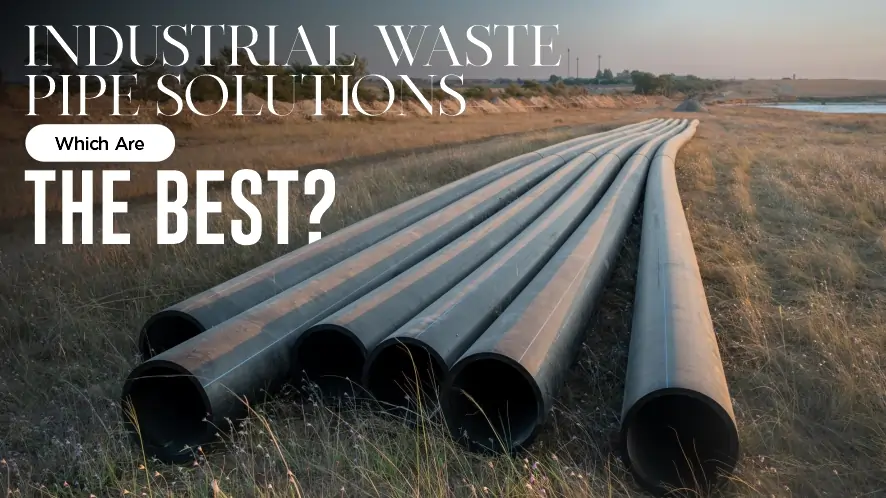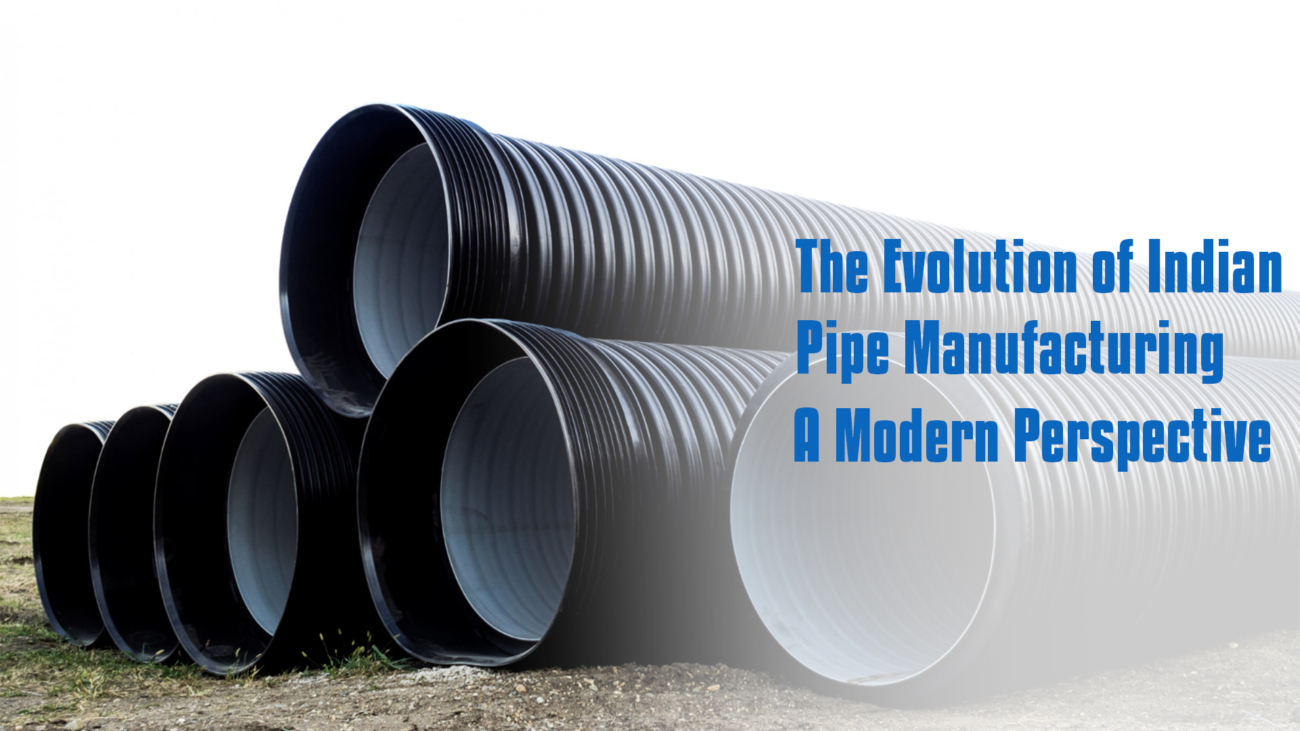A major role of industrial waste management is in ensuring environmental sustainability and operational efficiency. But it is really important choose the right pipes. But why some of the Industrial waste pipes are better than others? However, these pipes are required to be durable, corrosion-resistant and strong enough to handle different waste materials like liquid, gases and chemicals as well. Not only this, but you might be aware that why is it important to manage the industrial waste. It is important to manage the industrial waste as it is crucial for environmental protection, human health and even economic benefits. When we strategically manage the industrial waste, it helps to prevent pollution, conserves natural resources, reduces health risks and saves costs. We understand that it can be somehow challenging to choose the best pipes for waste, this is why we are here to help you. This blog is dedicated to explore different types of pipes, their applications and how to choose the suitable material for specific needs.
What are Industrial waste pipes used for?
There are many vital roles of industrial pipes in various sectors such as manufacturing, petrochemicals, pharmaceuticals and food processing. These pipes are specially used for transporting fluids, gases, and slurries from one point to another within industrial facilities. Some of the general uses of these pipes are:
A- Chemical processing: It is really important to handle harmful and dangerous chemicals. This means it becomes essential to use Durable waste pipes which doesn’t get damaged by chemicals and adhere to safety rules.
B- Water treatment: In the water treatment process, strong and durable pipes are required so that it can remove dirty water and even clean water. However, these pipes are required to be leak proof and capable of handling different water pressures which keeps the water clean and safe.
C- Oil and gas: The other use of HDPE industrial pipes is in transporting crude oil, natural gas and refined products and they need strong and safe pipelines. It is important for these pipelines to be able to handle high pressure and potential risks. This ensures safe delivery of oil and gas.
D- Food and beverage: Food and beverage industry requires clean things to move liquid food products. This also involves to use clean materials, regular cleaning processes and even following food safety standards. This helps to prevent contamination.
These different industries requires correct Pipes for factory waste to ensure safety and efficiency.
Types of industrial waste pipes
Different types of pipes are used in industrial waste management. And each of them have their own advantages and disadvantages. Some of the common types of pipes are:
A- Stainless steel pipes
Advantage– Highly corrosive resistant, durable and ability to ensure the test of time.
Disadvantage– Expensive than other materials.
B- PVC(Polyvinyl Chloride) pipes
Advantage– PVC Industrial waste pipes are lightweight, easy to install and even resistant to corrosion and chemicals.
Disadvantage– Have lower temperature tolerance and less durable.
C- HDPE (High Density Polyethylene) pipes
Advantage– The HDPE industrial pipes are flexible, chemical resistant and have long lasting service.
Disadvantage– Can be damaged from sunlight exposure.
D- CPVC (Chlorinated Polyvinyl Chloride) pipes
Advantage- This pipe is similar to PVC but has higher temperature resistance.
Disadvantage– These pipes are brittle at lower temperature and expensive than PVC.
E- Cast iron pipes
Advantage– These pipes are strong, durable and excellent for underground installations.
Disadvantage– These pipes are heavy and prone to corrosion.
These are some of the common types of industrial waste pipelines. However, it is important choose one of the right pipe for your purpose as they all are designed to cater different purposes.
How to choose the right material of these pipes?
When you invest into right Pipes for factory waste, it ensures safety, efficiency and longevity of the system. Here are some of the points to consider which can help you to pick the right pipe for your purpose:
A- Chemical compatibility: When you are investing into a pipe, then make sure that it is compatible with waste that it is going to transport which prevents corrosion and degradation.
B- Temperature tolerance: The pipe that you choose must withstand the operating temperatures of waste without compromising on the quality. So, make sure to choose the pipe which can handle extreme temperature.
C- Pressure rating: It is important for industrial waste pipes to endure the pressure of waste being transported.
D- Durability and longevity: Make sure to choose the material of the pipe that ensures resistance to wear and tear.
E- Installation and maintenance: Choose the material of the pipe that are easy to work and requires minimal efforts.
These are some of the points which will help you to choose the best pipe for your requirements.
Benefits of investing into quality industrial waste pipes
There are many of the benefits to invest into high-quality of industrial waste pipes:
A- Improved safety: When you use high quality of pipe then it reduces the risk of leaks, spills and accidents. However, it also protects both workers and environment as well.
B- Operational efficiency: It ensures smooth and uninterrupted waste transport which improves overall productivity.
C- Cost savings: A high quality of pipe will last long which will reduce the replacement or maintenance charges.
By investing in correct pipes, you can ensure efficient waste managements, enhanced safety and long term cost savings. Once you have determined the purpose of pipes and its correct material for the purpose, you can pick the right pipe.




